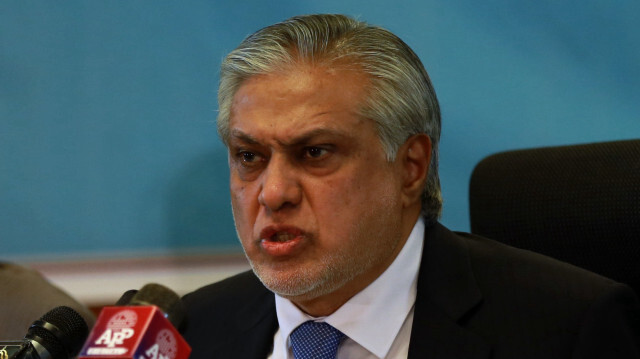
Finance Minister Ishaq Dar sets 3.5% GDP growth target for next year in his budget presentation to National Assembly, hoping to unlock International Monetary Fund program
The Pakistani government presented the annual budget for the fiscal year 2023-2024 in parliament on Friday, totaling 14 trillion rupees (approximately $50.4 billion) amid political tensions and high inflation.
Finance Minister Ishaq Dar set a 3.5% GDP growth target for next year in his budget presentation to the National Assembly, saying the government is focusing on elements of the “real economy” in the hope of unlocking the International Monetary Fund (IMF) program.
Islamabad entered a $6.5 billion IMF three-year program in 2019 and is still waiting for the remaining $2.5 billion, which is set to expire at the end of this month.
Despite depleted foreign reserves and an economic crisis, the government has allocated 1.804 billion rupees for defense in the budget, a 15.4% increase over the previous year.
Dar also announced a 35% pay increase for lower-level government employees and a 30% pay increase for officers.
According to the budget, the country's total expenditure for the next fiscal year starting on July 1 is 13,320 billion rupees, with gross revenue estimated at 12,163 billion rupees.
Earlier, Prime Minister Shehbaz Sharif presided over a Cabinet meeting to approve the budget, during which he stated that his government has accepted all IMF conditions and hoped to receive the remaining funds.
However, he said the country's economic growth is linked with political stability, as the South Asian nation is currently facing its worst economic and political crisis.
"Without political stability, even billions of dollars in the budget could not make a difference in improving the economic situation," Sharif was quoted as saying by Pakistan's state-run Associated Press.
The South Asian country missed almost all of its economic targets set in the previous budget during the current fiscal year, which ends in June, according to the local daily Dawn.
The current political and economic crisis has eroded the government's popularity of over 12 parties' alliance - Pakistan Democratic Alliance (PDM) - led by Sharif due to constant changes in the GDP growth announced in the previous year's budget.
Last year, Sharif's government projected 5% GDP growth, which was later reduced to 2% following the devastating floods in the country. However, it has been reduced to 0.29% for the current fiscal year, which ends this month.

